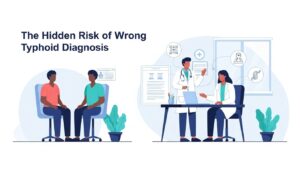Experiencing a miscarriage can be a profoundly devastating and personal event for any expectant parent. While this is a sensitive topic, it is crucial to understand the facts, the emotional impacts, and the steps you can take to cope and move forward. This comprehensive guide aims to provide the information and support you need during this challenging time.
What is a Miscarriage?
A miscarriage, also known as early pregnancy loss, is the spontaneous loss of a pregnancy before the 20th week of gestation. It is a common occurrence, affecting an estimated 10-20% of all recognized pregnancies. Miscarriages can happen for a variety of reasons, ranging from chromosomal abnormalities to underlying medical conditions.
Symptoms of Miscarriage
The most common signs of a miscarriage include:
- Vaginal bleeding, ranging from light spotting to heavy bleeding
- Abdominal cramping or pelvic pain
- Fluid or tissue passing from the vagina
- Back pain
- Decreased pregnancy symptoms, such as nausea or breast tenderness
It is important to note that not all bleeding during pregnancy indicates a miscarriage, but any concerning symptoms should be reported to your healthcare provider immediately.
Causes of Miscarriage
Miscarriages can occur for a variety of reasons, many of which are beyond the control of the expectant parent. Some common causes include:
- Chromosomal abnormalities: Errors in the genetic makeup of the fetus can lead to an unviable pregnancy.
- Uterine or cervical issues: Structural problems with the uterus or cervix can increase the risk of miscarriage.
- Hormonal imbalances: Thyroid disorders, diabetes, or other hormonal conditions can contribute to early pregnancy loss.
- Infections: Certain viral, bacterial, or parasitic infections can potentially harm the developing fetus.
- Chronic health conditions: Underlying medical conditions, such as autoimmune disorders or kidney disease, may increase the risk of miscarriage.
- Lifestyle factors: Factors like smoking, alcohol consumption, or excessive stress can also play a role in some cases.
It is important to remember that in most cases, a miscarriage is not the result of anything the expectant parent did or did not do.
Coping with Miscarriage
Experiencing a miscarriage can be an incredibly challenging and emotional journey. It is essential to allow yourself time to grieve and seek support from loved ones, healthcare providers, and mental health professionals if needed. Some strategies that may help include:
- Acknowledging and validating your feelings: Grief, anger, guilt, and sadness are all common and valid responses.
- Seeking emotional support: This can be from a counselor, support group, or trusted friends and family members.
- Practicing self-care: Ensure you get enough rest, eat a balanced diet, and engage in activities that bring you comfort.
- Communicating openly with your healthcare provider: Discuss your physical and emotional needs.
- Considering a memorial or other ritual: This can help honor the pregnancy and acknowledge your loss.
Moving Forward After a Miscarriage
While the healing process can be challenging, it is important to know that you are not alone, and there is hope for the future. Many women go on to have successful pregnancies after experiencing a miscarriage. Your healthcare provider can guide you through the next steps, which may include:
- Undergoing tests: To identify the underlying cause of the miscarriage, if possible.
- Receiving any necessary medical treatment or follow-up care.
- Discussing a plan for a future pregnancy: Including any recommended changes to lifestyle or medical management.
- Engaging in counseling or support services: To help process the emotional impact of the loss.
Remember, the path forward is unique to each individual, and it is essential to be patient and compassionate with yourself during this time.
Conclusion
Miscarriage is a difficult and sensitive topic, but by understanding the facts, seeking support, and taking care of yourself, you can begin the healing process. Your healthcare provider is there to guide you, and with time and self-compassion, you can move forward with hope and resilience. Remember, you are not alone in this journey, and there are resources and communities available to support you.
For more information or to schedule a consultation, please contact
Contact Well-Life Hospital
At Well-Life Hospital, a renowned infertility treatment centre located at No. 12 Atbara Street, Wuse 2, Abuja, FCT, we are dedicated to providing compassionate and comprehensive care to help you on your journey to parenthood. To learn more about our IVF services and to book a consultation, visit our website or contact us today.
- Website: welllifehospital.com
- Instagram: @welllifehospital
- Facebook: Well Life Hospital
- Twitter: @Well_Life_H
- TikTok: @welllifehospital
- YouTube: Well Life Hospital
- Mobile : +234 906 000 4314
… Your wellbeing is our goal






